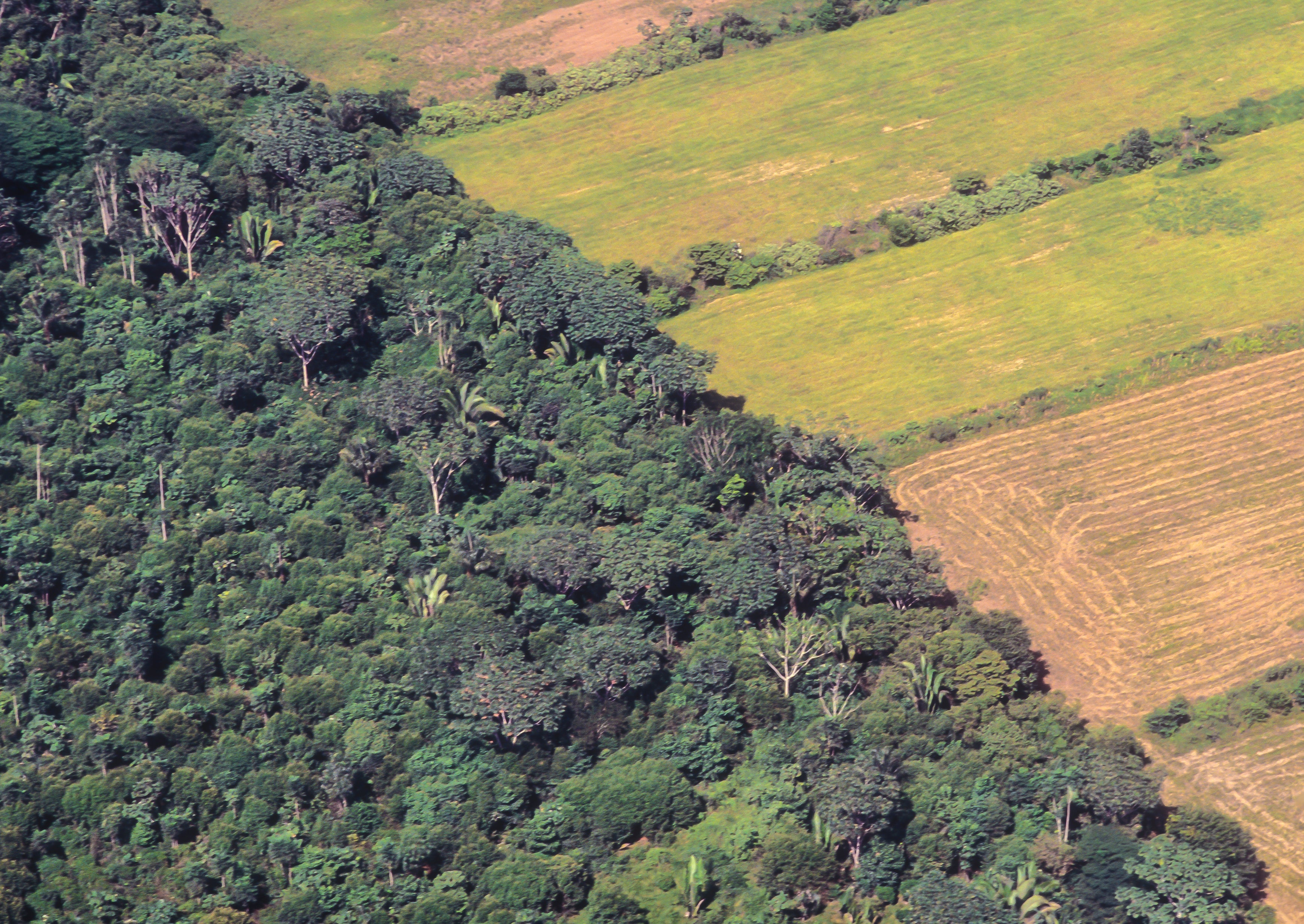UK government ‘considering import ban on soya linked to illegal deforestation’
UK imports over a million tonnes annually of soya-based animal with links to deforestation

The UK government is considering a ban on importing products which contain soya beans grown on land cleared through illegal deforestation.
Vast tracts of land in countries including Brazil, Argentina and Paraguay have been cleared to make way for industrial soya plantations, much of which is then used to make animal feed used in countries including the UK.
The Daily Telegraph reported the government could use a section of the Environment Bill to tackle the issue, ahead of the COP26 international climate summit in Glasgow later this year.
A “due diligence” component under the bill “would require certain businesses to only source legally produced commodities where there is ‘forest risk’ because of links to deforestation,” trade minister Ranil Jayawardena told the paper.
“Whether specific commodities, including soya, are in scope will be determined through secondary legislation, on which Defra will consult further,” he said.
However, Defra told The Independent there were no new announcements on the due diligence legislation, which will form part of the legislation but will not amount to a ban.
Soya is among the commodities named by the government when it announced the clampdown on products linked to illegal deforestation in November last year.
At the time, the government said it “will capitalise on its forthcoming presidency of the UN Climate Change summit next year in Glasgow to accelerate a global transition to more sustainable supply chains by bringing together producer and consumer countries of forest risk commodities to share perspectives and take action.”
Last month a joint investigation by Greenpeace and The Guardian revealed major UK supermarkets and restaurants including Tesco, Lidl, Asda, McDonald’s and Nando’s all buy chickens from British producers which feed the birds with soya linked to thousands of forest fires and the clearance of huge areas of land in the Brazilian Cerrado.
In total, over 1 million tonnes of soya was estimated to have been used by UK livestock farmers over 2019 which had direct links to deforestation, the research found.
Responding to the reports the government was aiming to tackle illegal deforestation through a clampdown on soya products, Katie White, executive director of advocacy and campaigns at WWF-UK, said: “This is a welcome step but we are losing forests at a catastrophic rate – the size of a football pitch is cleared every two seconds.
“A ban on deforesting goods is crucial - and that ban must include all the goods contributing to the destruction of our forests.
“Only then can the public be sure that the products they buy and eat are not destroying precious forests around the world.”
Though Defra told The Independent there was nothing new regarding the due diligence component of the Environment Bill, a spokesperson said: “We have introduced legislation that would make it a requirement for larger businesses to undertake due diligence on their supply chains where there is a risk they could be contributing to illegal deforestation.
“This is just one piece of a much larger package of measures that we are putting in place to tackle illegal deforestation.
“While the UK is a relatively small consumer of commodities such as soya, businesses must take greater responsibility for ensuring the resilience, traceability and sustainability of their supply chains.”
Join our commenting forum
Join thought-provoking conversations, follow other Independent readers and see their replies
Comments



Bookmark popover
Removed from bookmarks